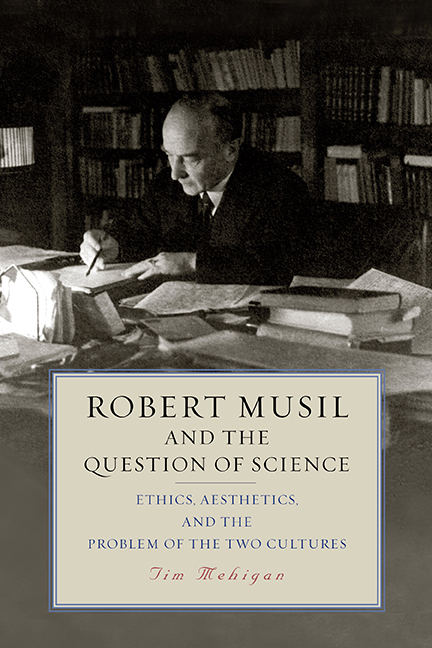Refine search
Actions for selected content:
12661 results in History of science
Acknowledgements
-
- Book:
- Slow Computing
- Published by:
- Bristol University Press
- Published online:
- 12 March 2021
- Print publication:
- 24 September 2020, pp vii-viii
-
- Chapter
- Export citation
Coda: Slow Computing During a Pandemic
-
- Book:
- Slow Computing
- Published by:
- Bristol University Press
- Published online:
- 12 March 2021
- Print publication:
- 24 September 2020, pp 170-175
-
- Chapter
- Export citation
Frontmatter
-
- Book:
- Slow Computing
- Published by:
- Bristol University Press
- Published online:
- 12 March 2021
- Print publication:
- 24 September 2020, pp i-ii
-
- Chapter
- Export citation
Notes
-
- Book:
- Slow Computing
- Published by:
- Bristol University Press
- Published online:
- 12 March 2021
- Print publication:
- 24 September 2020, pp 176-205
-
- Chapter
- Export citation
5 - Slow Computing Collectively
-
- Book:
- Slow Computing
- Published by:
- Bristol University Press
- Published online:
- 12 March 2021
- Print publication:
- 24 September 2020, pp 109-133
-
- Chapter
- Export citation
6 - An Ethics of Digital Care
-
- Book:
- Slow Computing
- Published by:
- Bristol University Press
- Published online:
- 12 March 2021
- Print publication:
- 24 September 2020, pp 134-156
-
- Chapter
- Export citation
Contents
-
- Book:
- Slow Computing
- Published by:
- Bristol University Press
- Published online:
- 12 March 2021
- Print publication:
- 24 September 2020, pp v-v
-
- Chapter
- Export citation
1 - Living Digital Lives
-
- Book:
- Slow Computing
- Published by:
- Bristol University Press
- Published online:
- 12 March 2021
- Print publication:
- 24 September 2020, pp 1-19
-
- Chapter
- Export citation
About the authors
-
- Book:
- Slow Computing
- Published by:
- Bristol University Press
- Published online:
- 12 March 2021
- Print publication:
- 24 September 2020, pp vi-vi
-
- Chapter
- Export citation

Robert Musil and the Question of Science
- Ethics, Aesthetics, and the Problem of the Two Cultures
-
- Published by:
- Boydell & Brewer
- Published online:
- 26 April 2020
- Print publication:
- 15 April 2020
Preface
-
- Book:
- Robert Musil and the Question of Science
- Published by:
- Boydell & Brewer
- Published online:
- 26 April 2020
- Print publication:
- 15 April 2020, pp vii-viii
-
- Chapter
- Export citation
Introduction: Musil’s Intellectual Position
-
- Book:
- Robert Musil and the Question of Science
- Published by:
- Boydell & Brewer
- Published online:
- 26 April 2020
- Print publication:
- 15 April 2020, pp 1-12
-
- Chapter
- Export citation
1 - The Question of Science
-
- Book:
- Robert Musil and the Question of Science
- Published by:
- Boydell & Brewer
- Published online:
- 26 April 2020
- Print publication:
- 15 April 2020, pp 15-31
-
- Chapter
- Export citation
2 - Musil, Ernst Mach, and the Problem of Causality
-
- Book:
- Robert Musil and the Question of Science
- Published by:
- Boydell & Brewer
- Published online:
- 26 April 2020
- Print publication:
- 15 April 2020, pp 32-50
-
- Chapter
- Export citation
8 - The Problem of Trust in The Man Without Qualities
-
- Book:
- Robert Musil and the Question of Science
- Published by:
- Boydell & Brewer
- Published online:
- 26 April 2020
- Print publication:
- 15 April 2020, pp 122-134
-
- Chapter
- Export citation
6 - Musil’s Concept of Value
-
- Book:
- Robert Musil and the Question of Science
- Published by:
- Boydell & Brewer
- Published online:
- 26 April 2020
- Print publication:
- 15 April 2020, pp 92-109
-
- Chapter
- Export citation
Conclusion: “A General Secretariat of Precision and Soul”: Ethics, Knowledge, and Literature after the Fourth Revolution 149
-
- Book:
- Robert Musil and the Question of Science
- Published by:
- Boydell & Brewer
- Published online:
- 26 April 2020
- Print publication:
- 15 April 2020, pp 149-160
-
- Chapter
- Export citation
7 - Unions: “An Episode of More than Merely Personal Significance”
-
- Book:
- Robert Musil and the Question of Science
- Published by:
- Boydell & Brewer
- Published online:
- 26 April 2020
- Print publication:
- 15 April 2020, pp 110-121
-
- Chapter
- Export citation
Index
-
- Book:
- Robert Musil and the Question of Science
- Published by:
- Boydell & Brewer
- Published online:
- 26 April 2020
- Print publication:
- 15 April 2020, pp 169-172
-
- Chapter
- Export citation
References
-
- Book:
- Robert Musil and the Question of Science
- Published by:
- Boydell & Brewer
- Published online:
- 26 April 2020
- Print publication:
- 15 April 2020, pp 161-168
-
- Chapter
- Export citation
